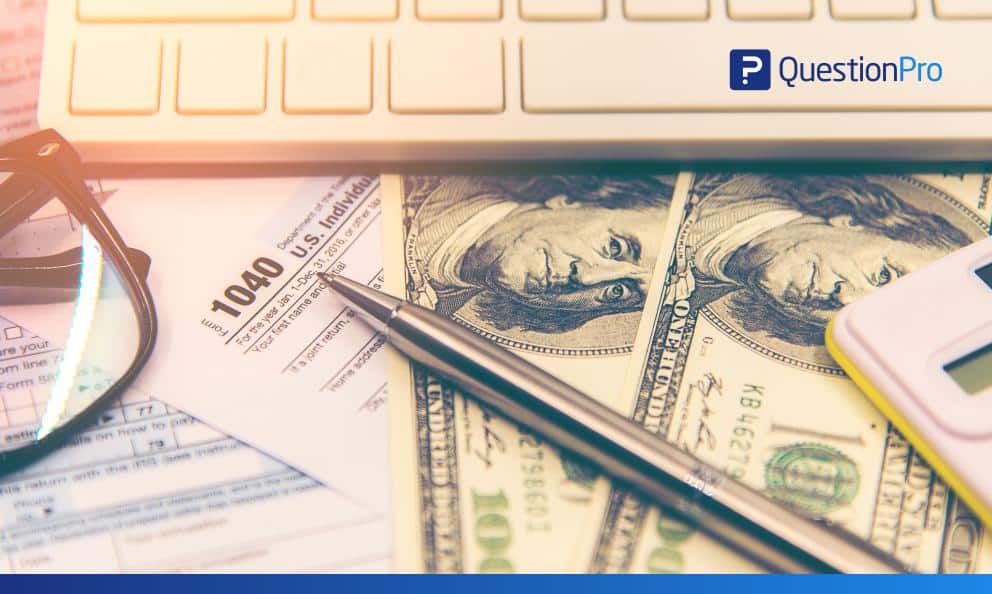 Reading Time: 3 minutes read
Reading Time: 3 minutes readThe richest man in history was a king named Mansa Musa, who ruled most of western Africa in the 14th century. King Musa possessed so much wealth that merely to travel he would be accompanied by a 60,000-strong caravan comprised of 1,000 attendants, 100 camels loaded with gold, bands of personal musicians, and 500 slaves bearing golden staffs. He would hand out so much gold to the poor when visiting a nation that inflation would balloon to the point of economic ruin.
To put more in perspective, you could combine the wealth of Jeff Bezos, Bill Gates, and Warren Buffett and it would hardly register in King Musa’s financial ledgers.
And like Bezos, Gates, and Buffet, he probably paid no taxes.
Same as it ever was, right? It’s the middle class, poor, and (normal) rich like Lebron James who pay taxes – not our demigods – and it’s certainly the case with the African American community.
But how do African Americans feel about taxes when not dreaming of being King Musa (okay, more like Lebron)? How did the recent tax season treat them in Trump America?
That’s the finding of a recent QuestionPro/Ebony joint study. The study surveyed 700 African Americans, equally across all demographics. Blacks may not be as angry as the rulers who saw the collapse of their kingdom when King Musa passed by with his bags of gold, but they’re not exactly in tax-shelter heaven.
Fair taxes or a taxing time?
We should probably deal first with the Republican tax plan, passed in December of 2017. How did it affect African Americans? Forty-seven percent of respondents disapprove of the tax plan, while only 18 percent approve. It should be mentioned that a majority of participants (50 percent) view themselves as Democrats – with 23 percent identifying as Independents and only 13 percent as Republicans. Beyond labels, 37 percent see their political views as moderate, 25 percent as liberal, and 16 percent as conservative.
Did the Republican tax plan translate into higher taxes for African Americans? Thirty-one percent claimed that their federal taxes went up this year – with 27 percent saying they stayed the same and 21 percent saying they went down. Twenty percent in the study stated they didn’t know if their taxes went up are down, and for those, perhaps that has to do with preparation and recording.
But who is preparing taxes in the African American community? Most participants (36 percent) say they personally prepared their taxes in 2019. The rest of the breakdown is even:
- Friend or family (16 percent)
- Paid tax preparation service (16 percent)
- Free tax preparation service (16 percent)
- Accountant (15 percent)
The most important data might be, in the end, how African Americans feel about their level of income tax this year. A majority (46 percent) are Goldilocks about their taxes – which means they feel they’re just about right. Thirty-four percent might agree with Chris Rock who once said: “You don’t pay taxes – they take taxes.” In other words, they feel their taxes are too high. Only six percent (the Bernie Sanders branch of African Americans, perhaps?) state that they pay too little federal taxes.
Getting that refund (or loan back from the government)
With 88 percent claiming they filed their taxes this year before the April 15 deadline, 60 percent of those surveyed said they already received a refund. Eighteen percent they didn’t owe money to the government while 17 percent stated they owed taxes this year.
Those who received their funds will not be celebrating or handing it out like King Musa. Forty-nine percent of respondents say federal refunds were used to pay bills or outstanding debts. Here is the rest of the breakdown when it comes to the use of tax refunds:
- Savings (24 percent)
- Shopping (17 percent)
- Investing (Eight percent)
- Other/don’t know (two percent)
Ultimately, it’s hard to say how taxes and the future will meet for African Americans. One thing is certain (almost as certain as death and taxes): as the perpetual election cycle ramps up for 2020, African American will get the usual pandering. Take, for example, Beto O’Rourke recently proposing a tax plan that would siphon wealth from the rich directly to blacks. More of these ideas will come, especially as Democrat candidates in the primaries court the heavily black population of South Carolina.
Unlike King Musa, who helped minorities and the dispossessed, it’s likely these political promises are mostly fool’s gold. President Trump may have gotten his treasured tax plan in 2017, but that seems to have drained most of his political capital to the point no walls on the Mexican border are on the horizon. This might be the one time in history where a tax plan that was meant to benefit the rich actually helped the very poor.









